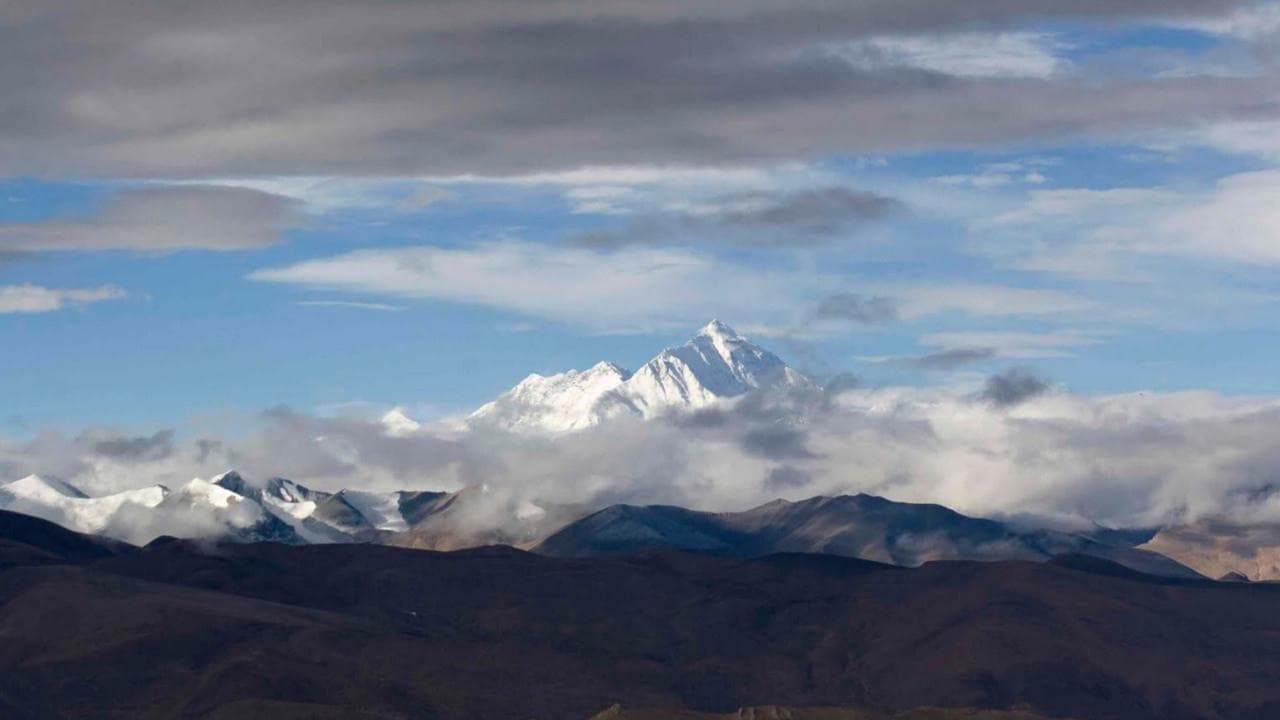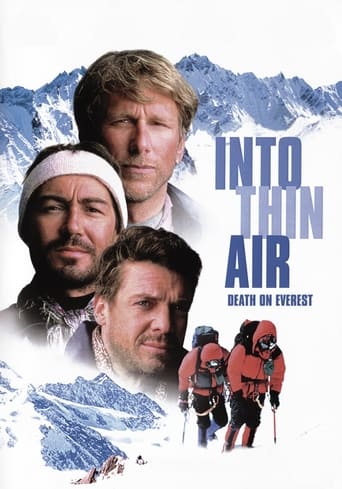

Under the constraints and parameters of trying to re-create historically-accurate, emergency conditions on Mt. Everest, as experienced by a somewhat disparate and hodge-podge assembly of climbers and guides, this movie excels. I beg to differ most ardently with those who have said that the characters "lack development": Krakauer's doubts, misgivings and apprehensions give a great deal of texture to the humanity and psychology involved. Hall's conventional wisdom, won from massive climbing experience, in contrast to the naivety, ego and inexperience of some of the climbers, gives a clear illustration of the rift in the social dynamic of the group. Anatoli Boukreev is depicted as complex, demanding and rigid, but his act of heroism: Going back out into the storm to find lost climbers after just barely making it back to his tent with his life, is one of the high points in the movie, and unexpected, as well. The photography is excellent. Technical talk regarding weather, physiology and hardware is heard, but it is not overwhelming. Some of the climbers are not introduced thoroughly, but that only adds to the mystery and excitement of the movie: One is never quite certain how some of the climbers will perform. Considering that the two group leaders lost their lives on this climb, it is very likely that the relentless heroism as portrayed in Into Thin Air is quite close to the truth: They probably ended up sacrificing themselves to save others. Although the movie was, for obvious reasons, not filmed at 100 below zero windchill farenheit, I don't see how to make it any better without stretching it to two hours long and jeopardizing the actors and crew with even-harsher conditions. This movie was done with a great deal of respect for those involved in this event. I will not call what happened in 1996 a tragedy, though: We also have to see the magnitude of the victory of the human spirit involved.
... View MoreOkay, so I get that they had to cut a lot for time. It's a made-for-TV movie and I wasn't really expecting total accuracy. I don't really have any major problems with the condensing of events and speeding up the timeline of acclimatization and the ascent. I have re-read the book a couple of times in the recent past and I also read Beck Weathers's "Left for Dead," so I noticed a lot of inaccuracies, but there were only a few that really bothered me.The first is that they portrayed Yasuko Namba as incompetent and maybe a little stupid. I haven't seen evidence elsewhere of either. While she was not a professional climber, she had successfully completed 6 of the 7 summits. The mistake she made (of clipping on before the rope was anchored) was not made like an idiot when she was just starting the climb...it was made near the summit where oxygen and judgment are harder to come by. That error was also caught before she pulled Beidleman down. She also died much more quietly, as far as Krakauer's account goes.The second problem I had was Krakauer's incredibly over-inflated role in the movie. During most of the disaster, he was sleeping in his tent. That's not meant to be a criticism of him, but it was really weird to see him being the one everyone was calling and him being the one in charge of everything. I suppose they were trying to condense and not bother to introduce one more character (poor Stuart Hutchison gets no credit here), but it's the least useful and most nonsensical condensation in this movie. I also don't like the playing up of the rivalry between Hall and Fischer and I don't think that Fischer was as over-the-top reckless as he was portrayed here.I think I'm going to show Storm Over Everest to my class instead.
... View MoreJon Krakauer's story of climbing Mount Everest earned him his first best seller. Climbing Mount Everest was something that I would have never thought about before until now. It seems exciting even though there have been many casualties of people achieving the difficult climb of almost 40,000 feet. This movie has a good cast featuring Christopher McDonald as Jon Krakauer, Peter Horton as team guide Scott Fischer, and Richard Jenkins as Beck Weathers. The story of the climb reminds me of a Perfect Storm. After they reach the summit, they face treacherous weather and casualties mount. It's question of survival, clash of egos, and arrogance as well as motivation and drive to achieve the almost impossible of reaching MOunt Everest and surviving the experience.
... View More"Into Thin Air: Death On Everest" is a wonderful film and a good start into understanding -- if that is possible -- the need some people have to climb mountains. The film covers the main events of Krakauer's experience and condenses characters to fit the needs of a 90 minute TV film. While the basics are here, the story has been greatly slimmed down and the amount of time involved, truncated. For instance, I would have liked to have seen the daring helicopter rescue by a very brave Nepalese army pilot. To mark a landing spot, those on the mountain made a large X in the snow with a red sports drink.Since the film was produced directly from Krakauer's book, it does not reference other accounts. Krakauer later admitted that some of the details he wrote were incorrect because he was as addled as everyone else, mistaking one climber for another. Krakauer's book is only one of several accounts of the tragic climb that took a fifteen lives in all. This movie could have used an extra half hours to cover more details, but it is fair to say that this is not meant to be a documentary. It comes down to a study of human hubris when faced with the drive to challenge the highest peak on Earth.For those who want to understand the complexity of the real drama, it is necessary to study the other points of view, some of which contradict Krakauer. A good second film to watch is the IMAX film "Everest" which was filmed during the same climb. Anatoli Boukreev wrote a reply to Krakauer in his book "The Climb: Tragic Ambitions on Everest." Scott Fisher's lead Sherpa, Lopsang, also responded to Krakauer's criticisms in writing. Tragically, both Boukreev and Lopsang died in separate climbing accidents not long after the fatal Everest events (Lopsang in September 1996 and Boukreev in December 1997).For those who wonder about what it would be like to climb Everest, it is much safer to watch the film. It is about all the experience most of us will ever need.
... View More